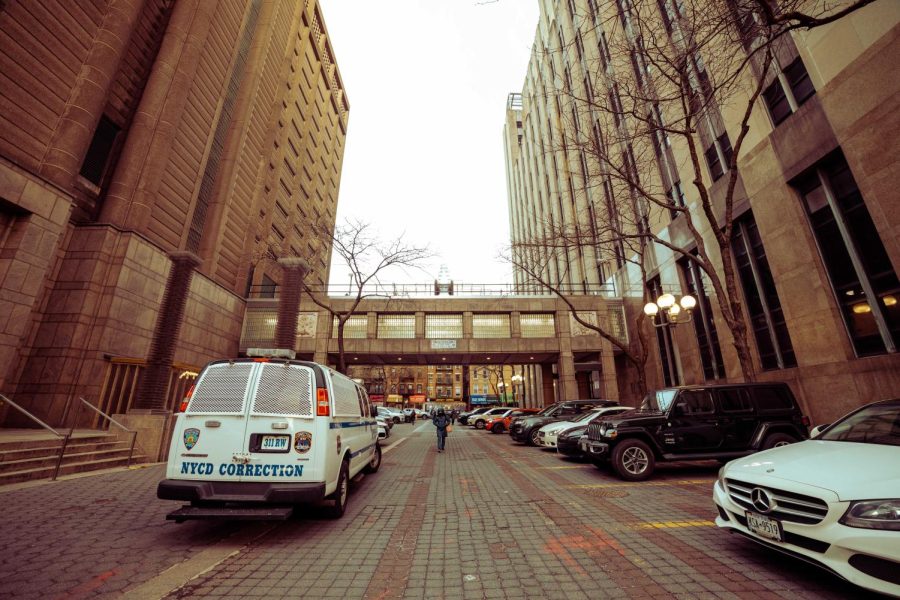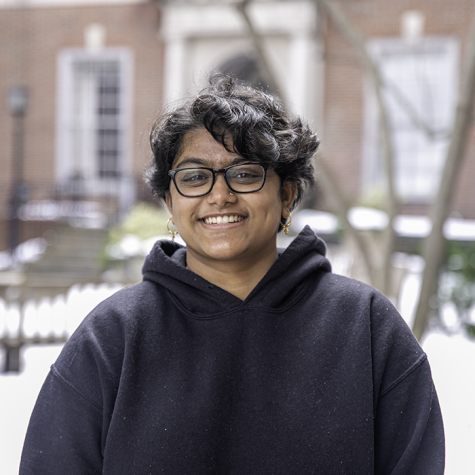Opinion: Anti-Asian hate crimes are not a reason to bolster policing
Asian American communities across the country are being targeted in anti-Asian hate crimes. While these communities deserve to feel safe, an increase in policing is not the answer.
The Manhattan Detention Complex is located at 125 White St. in the heart of Chinatown. With the frequency of hate crimes against Asian Americans on the rise in New York, some are calling for solutions that don’t involve police. (Staff Photo by Samson Tu)
March 10, 2022
Seven students were attacked on NYU’s campus between Feb. 2 and Feb. 25. At least three of the students assaulted were Asian. These blatantly targeted assaults are part of the nationwide increase in anti-Asian hate crimes. In New York City, Asian Americans are demanding that their safety be taken seriously. Some community organizations, such as merchant associations, are asking for increased police presence in Asian communities, stricter prosecution of offenders and restrictive bail policies, according to the New York Times.
In response to the recent attacks, NYU Campus Safety will be working closely with the New York City Police Department Asian Hate Crimes Task Force, Global Campus Safety Vice President Fountain Walker announced in a school-wide email last week. However, many younger Asian Americans rightfully feel that increased policing will do little to protect them and only exacerbate structural inequalities.
Over 85 Asian American and LGBTQ organizations have raised concerns regarding the COVID-19 Hate Crimes Act, which increased policing in order to assuage grieving Asian American communities. The act, passed last April, notably provided “grant money to law enforcement agencies that train their officers to identify hate crimes,” the New York Times reported.
“What we’re trying to do is we’re calling for a redistribution of wealth and resources into things like health care, and housing, social services, because we know that’s at the root of the violence that we see in our communities,” Jason Wu, co-chair of the volunteer organization Gay Asian and Pacific Islander Men of New York, told NBC last May. “When we know that more policing and prisons is not keeping us safer, why is it that we continue to ask for the same approaches to violence and crime?”
Policing in the United States was historically designed to maintain the white supremacist status quo. In its earliest form, policing was used to surveil and persecute enslaved Black Americans. In the more recent aftermath of 9/11, policing has been used to target brown members of the Asian community; South and West Asian Sikhs and Muslims faced overbearing scrutiny from local police while battling astronomic rises in Islamophobic sentiments.
Policing is a historically anti-Black and generally racist institution, meant to preserve white property. Why should we suddenly trust policing to prioritize our safety?
Many community organizers point to the fact that the most visible anti-Asian hate crimes have been committed by the unhoused and mentally ill. Though it is no excuse for blatant racism, these perpetrators are often victims of systemic oversight as well. By implementing better access to housing, readily available mental health care, and comprehensive drug policies rooted in harm reduction, just how much could the protection of vulnerable Asian communities improve?
We must also understand that much of the root of this violence is intrinsically tied with the deeply Sinophobic rhetoric perpetuated during this pandemic. Because COVID-19 was first documented in China, Asian people suffered racist descrimination perpetuated by many white Americans, Donald Trump included.
“When you encourage hate, it’s not like a genie in a bottle where you can pull it out and push it back in whenever you want,” Manjusha Kulkarni, co-founder of Stop AAPI Hate and executive director of the Asian Pacific Policy and Planning Council, told NPR last August. :There’s too much perpetuating these belief systems to make them go away.”
Ending the violence that Asian Americans face is an undertaking involving many moving parts. We need more direct resources for Asian American community leaders, more comprehensive social welfare programs, and a more proactive effort to curb anti-Asian attitudes that pervade daily life. It’s certain, however, that increased policing will do nothing to address the systemic issues contributing to harmful anti-Asian sentiments.
Contact Srishti Bungle at [email protected].




























































































































































